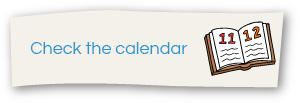Music
Our Music Curriculum is designed to be accessible to all so that every child feels engaged and motivated to see the world through the eyes of young musicians. We believe that all children can achieve in Music – having fun and exploring their own music talents and preferences. We believe through learning music, pupils will develop creatively, culturally and spiritually.
The National Curriculum for Music aims to ensure that all children:
- Perform, listen to, review and evaluate music
- Be taught to sing, create and compose music
- Understand and explore how music is created, produced and communicated
At Dee Point, we use Kapow to support the teaching of Music from Foundation Stage to Year 6. Kapow offers an integrated, practical, exploratory and child-led approach to learning music.

The Music Curriculum ensures children Listen and Respond, Explore and Create, Sing and Play and Share and Perform. This is embedded though weekly music lessons. Some children have individual piano lessons and small group ukulele lessons. We regularly participate in community events, singing with our school choir and year group events.
In the classroom, children learn how to play different instruments such as glockenspiels, tuned and unturned percussions, which facilitate the understanding of the different musical methods, the musical families and the enjoyment and skills of playing an instrument. It also teaches and provides an opportunity to practice writing and reading musical notation in different forms. They also learn how to compose, focusing on different layers of music, which supports their understanding when listening, playing and analysing music.
Through the program Kapow, teachers are able to produce inclusive lessons for all children to access the music curriculum in a fun and engaging way, further promoting a love of learning.
At present, we are using the Transitioning to Kapow scheme of learning. Please use the link to access the progression of lessons through Kapow.

